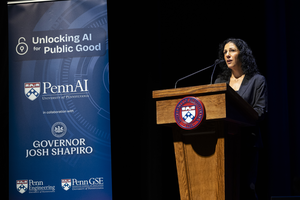Faculty Expert
Damani White-Lewis recently commented on a study by Theodore Masters-Waage et al. published in Nature Human Behaviour. The study uncovered significant racial bias in faculty promotion and tenure decisions across U.S. universities, analyzing 1,571 real cases. It revealed that racially minoritized scholars, particularly women, faced 7% more negative votes and were 44% less likely to receive unanimous support, even when scholarly productivity was similar.
White-Lewis emphasized the far-reaching consequences of these voting patterns, warning that even when tenure is granted, the lack of unanimous support could make a negative impact. “How a vote materializes is likely to have cascading effects on a faculty member’s career,” he said, suggesting that the voting outcomes could influence faculty members’ feelings of support and commitment to their institutions.
His commentary, also cited by Nature and Science, advocates for more rigorous data collection to accurately identify disparities across disciplines and institutions. He called for reforms in tenure practices, such as refining guidelines for external letters and better recognizing diversity, equity, and inclusion contributions. White-Lewis is actively engaged in developing interventions to promote equitable decision-making in academia.
Adding a critical voice to the conversation, he challenges the academic community to take action: “Masters-Waage et al. presented evidence that [promotion and tenure] currently does not [operate equitably] — how will we respond?”
Read more at Nature Human Behaviour.
Media Inquiries
Penn GSE Communications is here to help reporters connect with the education experts they need.









